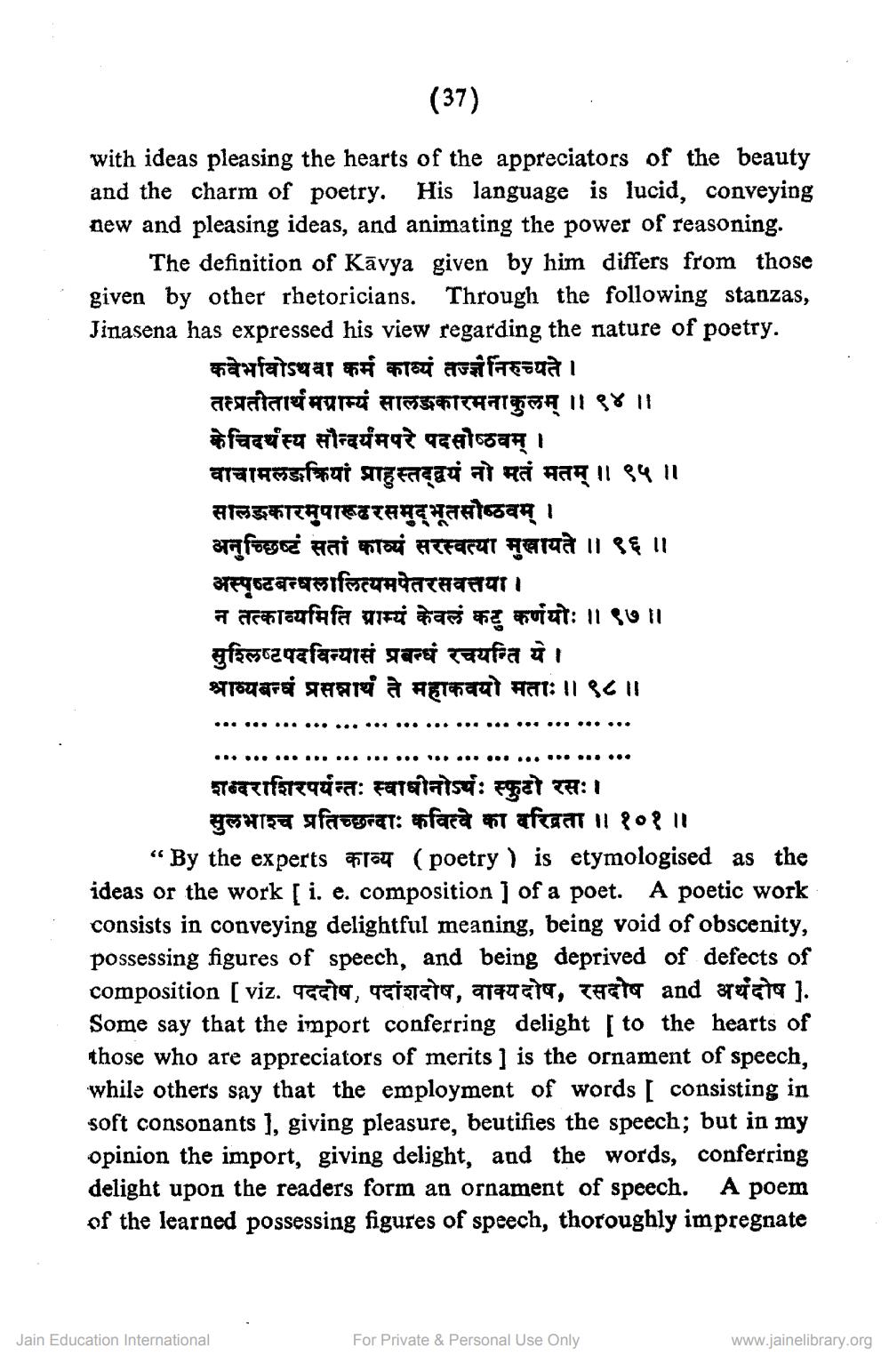________________
(37)
with ideas pleasing the hearts of the appreciators of the beauty and the charm of poetry. His language is lucid, conveying new and pleasing ideas, and animating the power of reasoning.
The definition of Kāvya given by him differs from those given by other rhetoricians. Through the following stanzas, Jinasena has expressed his view regarding the nature of poetry.
कवेर्भावोऽथवा कर्म काव्यं तज्जनिरुच्यते । तत्प्रतीतार्थमग्राम्यं सालङकारमनाकुलम् ।। ९४ ।। केचिदर्थस्य सौन्दर्यमपरे पदसौष्ठवम् । वाचामलङक्रियां प्राहुस्तद्वयं नो मतं मतम् ॥ ९५ ।। सालङकारमुपारूढरसमुद्भूतसौष्ठवम् । अनुच्छिष्टं सतां काव्यं सरस्वत्या मुखायते ॥ ९६ ।। अस्पष्टबन्धलालित्यमपेतरसवत्तया। न तत्काव्यमिति ग्राम्यं केवलं कटु कर्णयोः ॥ ९ ॥ सुश्लिष्टपदविन्यासं प्रबन्धं रचयन्ति ये। श्राव्यबन्धं प्रसन्नाथं ते महाकवयो मताः।। ९८॥
..........
शब्दराशिरपर्यन्तः स्वाधीनोऽर्थः स्फुटो रसः।
सुलभाश्च प्रतिच्छन्दाः कवित्वे का दरिद्रता ॥ १०१॥ " By the experts काव्य (poetry ) is etymologised as the ideas or the work [i. e. composition ] of a poet. A poetic work consists in conveying delightful meaning, being void of obscenity, possessing figures of speech, and being deprived of defects of composition [viz. पददोष, पदांशदोष, वाक्यदोष, रसदोष and अर्थदोष ]. Some say that the import conferring delight [ to the hearts of those who are appreciators of merits ) is the ornament of speech, while others say that the employment of words [ consisting in soft consonants ], giving pleasure, beutifies the speech; but in my opinion the import, giving delight, and the words, conferring delight upon the readers form an ornament of speech. A poem of the learned possessing figures of speech, thoroughly impregnate
Jain Education International
For Private & Personal Use Only
www.jainelibrary.org




